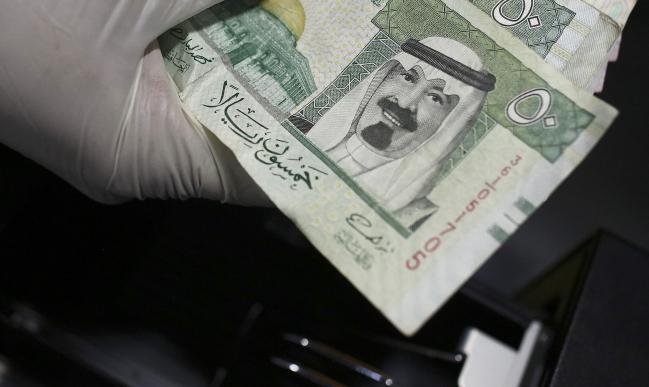(Bloomberg) -- Saudi central bank Governor Ahmed Alkholifey said increased sovereign debt issuance means the regulator can now use open-market operations -- the buying and selling of securities to influence borrowing costs -- if needed.
Alkholifey said the Saudi Arabian Monetary Authority, as the central bank is known, has enough tools to mitigate the impact of higher U.S. interest rates on the economy.
That includes placing government deposits in the banking system as well as the use of “swap arrangements, and also we can now go to market operations, given that we now have more bonds and sukuk,” he told Bloomberg TV’s Erik Schatzker on Thursday in Riyadh.
Saudi Arabia tracks U.S. Federal Reserve interest-rate decisions to maintain its currency peg to the dollar. But while the Fed is raising borrowing costs as the U.S. economy improves, Saudi policy makers are trying to overcome the worst economic slowdown since the global financial crisis.
Since the Fed tightening cycle started in December 2015, the Saudi central bank has raised its reverse repo rate to 1.25 percent while keeping the repo at 2 percent to avoid impacting already-sluggish credit growth. Alkholifey said he is in no rush to raise the upper band of the corridor.
“I don’t see it coming in the near future, given the corridor we have,” he said. “Before we have gone as far as 25 basis points, and probably can go there again.” Asked which tool he prefers to cushion the economy, he said: “I would like to try market operations, it is new for us, and we are ready to use” them whenever we need.
